American Women's Clothing Brands: A Journey Through Fashion
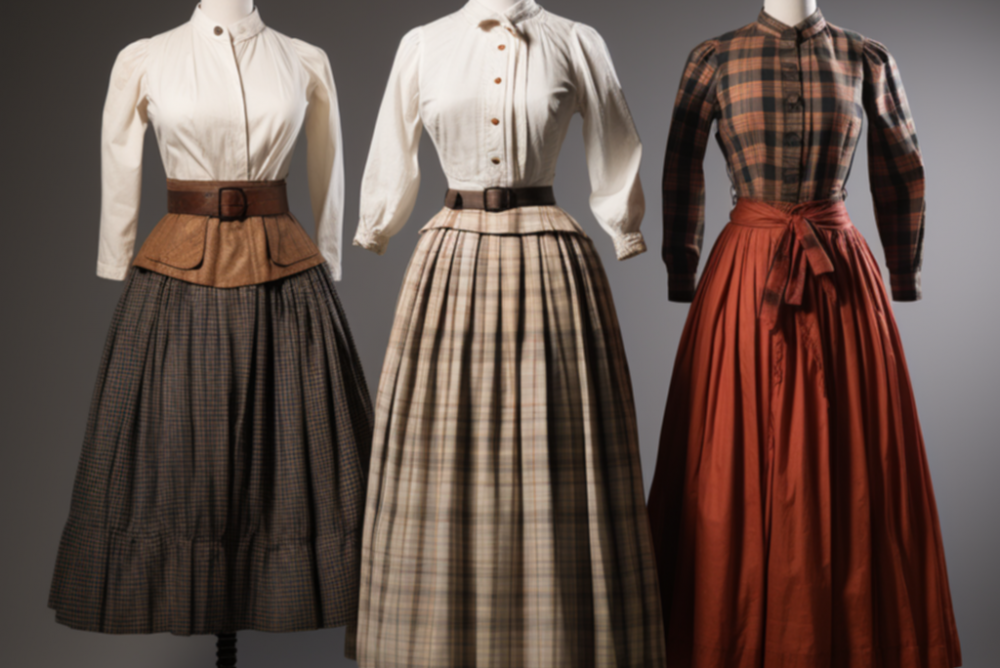
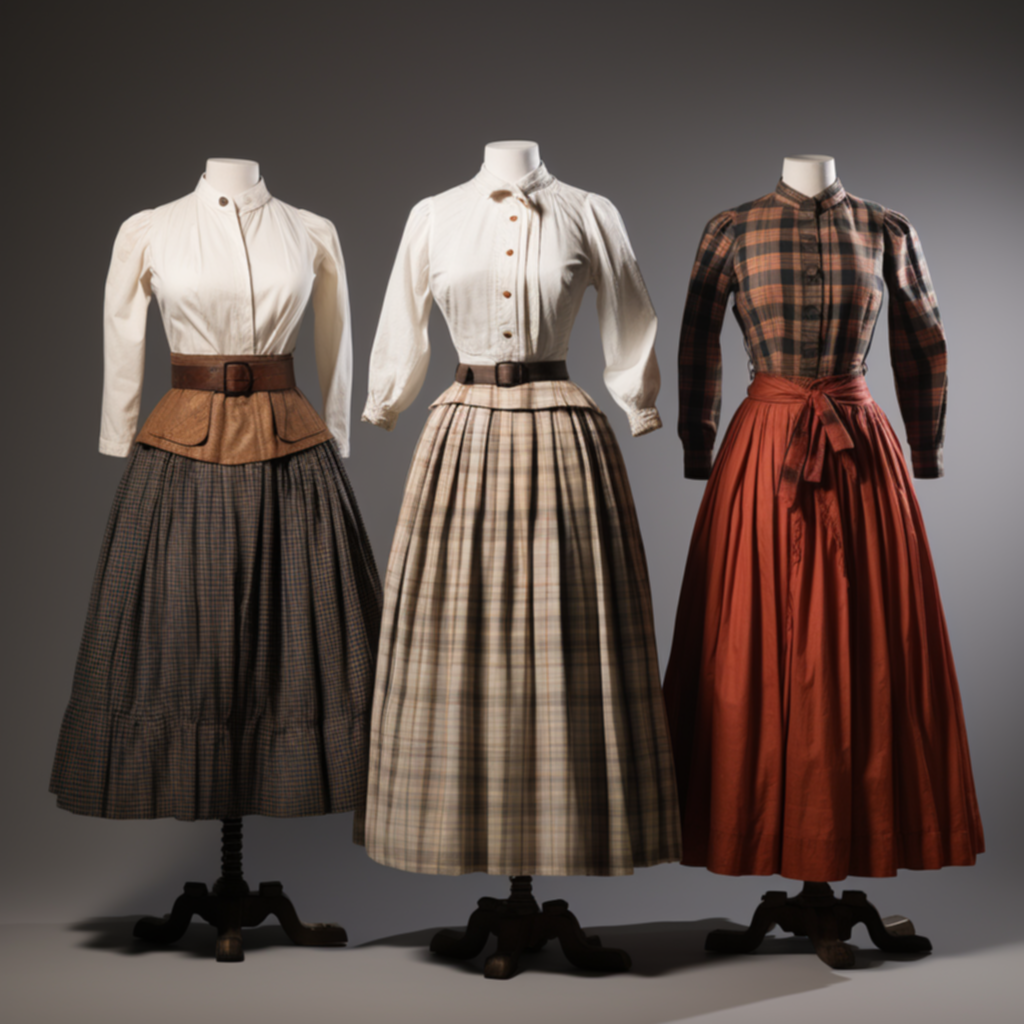
The fashion industry is an ever-changing landscape, rife with creativity, innovation, and a keen sense of style. At its heart, American women's clothing brands have contributed significantly to shaping the global fashion industry. Their influence stretches beyond the borders of the United States, carving an indelible mark in international fashion trends and styles.
From iconic names like Ralph Lauren and Calvin Klein, known for their timeless designs, to up-and-coming labels pushing the boundaries of creativity, American women's clothing brands offer a diverse range of styles to cater to every fashion preference. They encapsulate a unique blend of the classic and the modern, the understated and the bold, the casual and the extravagant.
In the ensuing chapters of this comprehensive guide, we will delve into a fascinating journey exploring the evolution, influence, and future trends of American women's clothing brands. We'll explore the historical context that led to the rise of these brands, their defining moments, and what sets them apart in the highly competitive world of fashion. We'll also shine a light on emerging brands that are paving the way for the future, and discuss the role of sustainability in the industry.
Through a meticulous examination of these brands, this guide aims to provide an in-depth understanding of the dynamism, diversity, and distinctiveness of American women's clothing brands. So, whether you're a seasoned fashionista, an emerging designer, or simply a fashion enthusiast, this guide offers valuable insights into the world of American women's fashion.
Join us as we embark on this sartorial journey, appreciating the artistry, innovation, and inspiration behind American women's clothing brands.
The Influence and Impact of American Women's Clothing Brands
American women's clothing brands have been instrumental in shaping the fashion industry, not just in the U.S., but across the globe. Their influence permeates every facet of fashion, from high-end couture to ready-to-wear collections, influencing the styles that grace runways, fashion magazines, and even our daily wardrobes.
In this chapter, we will explore the various ways these brands have made their mark on the fashion industry, the evolution of their design aesthetics, and how they have influenced and continue to shape global fashion trends.
2.1 Setting Global Fashion Trends
American women's clothing brands have a long history of setting fashion trends. For instance, Ralph Lauren's iconic polo shirts and Calvin Klein's minimalist aesthetic have become style staples worldwide. They have innovated and diversified their collections over the years, creating clothing lines that reflect the changing tastes and demands of consumers.
2.2 Promoting Diversity and Inclusion
Several American women's clothing brands have played pivotal roles in promoting diversity and inclusion within the fashion industry. Brands like Fenty by Rihanna have disrupted the fashion landscape by creating clothing lines catering to a broad range of body types and skin tones, challenging the industry's traditional norms.
2.3 Influencing Popular Culture
The influence of American women's clothing brands extends beyond the runway, infiltrating popular culture. They are prominently featured in movies, television shows, and music videos, shaping the way we perceive fashion. Brands like Tommy Hilfiger and Guess have found their way into the lyrics of popular songs, further cementing their status in fashion and pop culture.
2.4 Pioneering Innovations in Fashion
Innovation is at the heart of the fashion industry, and American brands have been at the forefront of this. They have introduced novel ideas, such as 'see-now-buy-now' shows and the incorporation of technology into fashion, creating wearable tech pieces. Brands like Kate Spade and Rebecca Minkoff have led the way in these innovations.
American women's clothing brands have significantly impacted the fashion industry, setting trends, challenging norms, and introducing innovations. Their influence is undeniable, and they continue to shape the fashion world with their unique styles and visions.
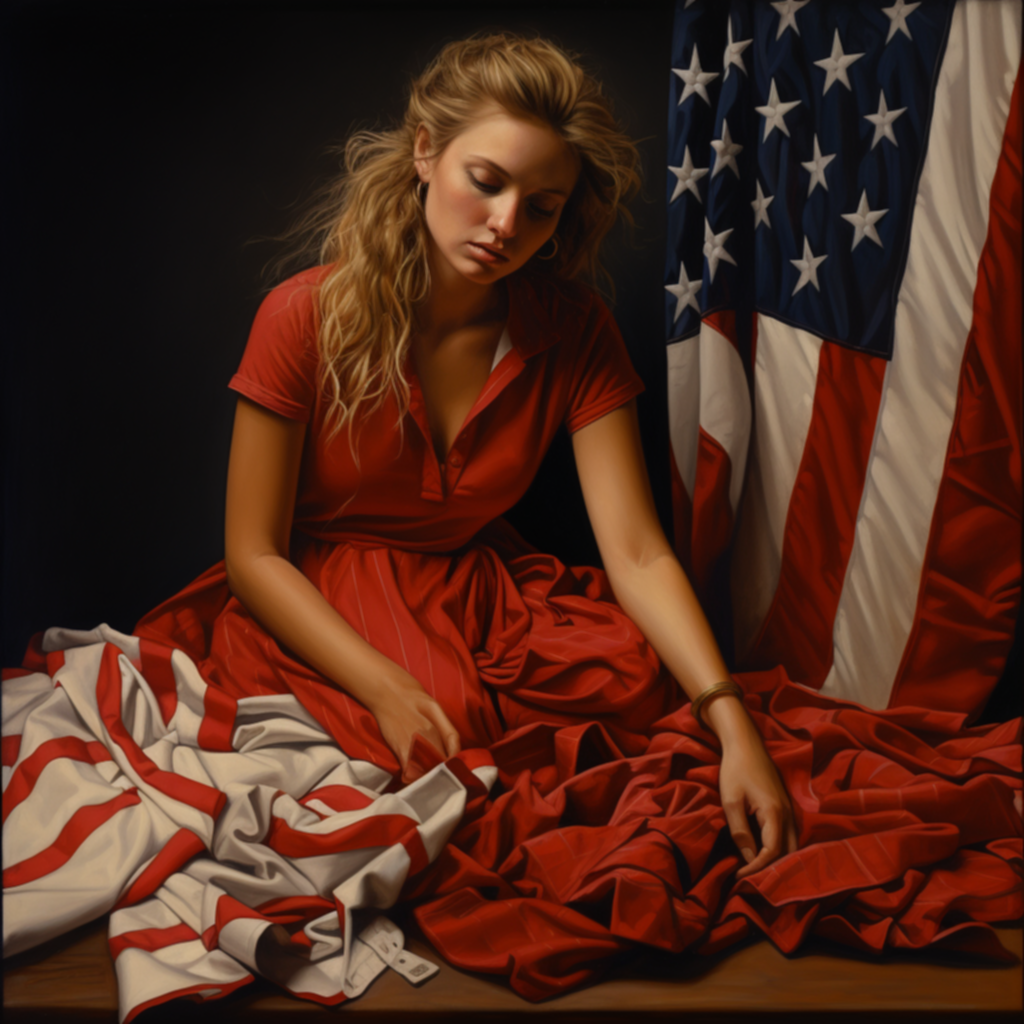
A Historical Perspective: The Evolution of American Women's Clothing Brands
The fashion industry's landscape is fluid, mirroring the ebb and flow of societal changes, cultural shifts, and technological advancements. As we take a retrospective journey, we find that the evolution of American women's clothing brands is a compelling narrative intertwined with these elements.
3.1 The Emergence of American Style
The early 20th century marked a significant turning point in the history of American fashion. During this period, sportswear emerged as an influential category, and brands like Pendleton and LL Bean started gaining recognition for their casual and comfortable clothing. This period laid the foundation for the quintessential 'American Style' - easy, functional, and sporty.
3.2 The Mid-century Boom
Post World War II, American fashion saw a boom, with brands like Anne Klein and Calvin Klein emerging. They pioneered a new kind of fashion - ready-to-wear, offering off-the-rack styles that combined sophistication and comfort. This period was also defined by the rise of the 'American Look', a style known for its simplicity and wearability.
3.3 The Designer Era
The latter part of the 20th century heralded the 'Designer Era'. Notable designers like Ralph Lauren, Donna Karan, and Tommy Hilfiger started their labels, carving a niche with their distinctive styles. This era elevated American fashion on the global stage, competing with established European fashion houses.
3.4 The Contemporary Phase
The 21st century introduced a wave of fresh talent and innovation. Brands like Tory Burch and Alexander Wang made their mark with their unique design sensibilities. This era also witnessed the rise of online retail, eco-conscious designs, and inclusive sizing, reflecting the industry's adaptability to changing societal norms and values.
Through this historical lens, it's evident that the evolution of American women's clothing brands is a rich tapestry of style and innovation, influenced by societal changes and cultural shifts. This journey underlines the dynamism of American fashion, characterized by its continuous reinvention and adaptability.
An Overview of Notable American Women's Clothing Brands
The American fashion industry boasts an array of iconic brands, each with its unique style ethos and influence. In this chapter, we will delve into ten notable American women's clothing brands that have made a significant impact on the global fashion landscape.
4.1 Ralph Lauren
Founded by Ralph Lauren in 1967, this brand has become synonymous with American luxury. Known for its iconic Polo line, Ralph Lauren embodies timeless elegance with a preppy twist. Their collections exude a sense of sophisticated casualness, merging high-quality materials with classic design aesthetics.
4.2 Calvin Klein
Calvin Klein revolutionized the fashion world with its minimalistic and modern designs. Established in 1968, the brand is known for its sleek silhouettes and understated elegance, offering collections that range from ready-to-wear to accessories and fragrances.
4.3 Kate Spade
Kate Spade New York is famed for its vibrant colors, playful prints, and sophisticated designs. Founded in 1993, the brand began with a line of stylish handbags before expanding into clothing, offering chic and fashionable designs that capture the spirit of New York.
4.4 Coach
Established in 1941, Coach is a leading design house known for its luxury accessories and ready-to-wear collections. Their designs blend New York style with modern luxury, creating a range of stylish handbags, shoes, apparel, and accessories.
4.5 Tommy Hilfiger
Tommy Hilfiger is renowned for its classic American cool style. Founded in 1985, the brand fuses traditional American style with unique details, delivering a fresh take on classic, American styles, from sportswear to denim and beyond.
4.6 Michael Kors
Founded in 1981, Michael Kors offers luxury accessories, footwear, and apparel. Known for his classic American sportswear aesthetic, Kors designs are chic, sleek, and carry an enduring elegance, making them staples in any fashion-conscious wardrobe.
4.7 Donna Karan
Donna Karan, launched in 1984, revolutionized the fashion industry with her "Seven Easy Pieces" philosophy, aimed at crafting a modern system of dressing. Known for its elegance and comfort, the brand continues to offer stylish, urban-inspired collections.
4.8 Marc Jacobs
Marc Jacobs, established in 1984, is renowned for its bold, eclectic aesthetic. The brand blends preppy influences with grunge, creating designs that are irreverent, quirky, and fashion-forward.
4.9 Tory Burch
Tory Burch, founded in 2004, is known for its vibrant, eclectic, and bohemian styles. Her collections resonate with classic American sportswear, reimagined with a modern and personal touch, embodying a unique sense of style and sophistication.
4.10 Diane Von Furstenberg
Established in 1972, Diane Von Furstenberg is famed for introducing the wrap dress, a style that has since become a fashion staple. The brand symbolizes power and femininity, offering designs that celebrate the diversity and complexity of modern women.
These ten brands, among many others, define the rich and diverse landscape of American women's clothing. Their contributions to the fashion industry are invaluable, shaping the industry's course while continuously offering styles that cater to evolving tastes and trends.

Emerging American Women's Clothing Brands
While established brands continue to dominate the American fashion landscape, several emerging labels are making waves with their innovative designs and unique aesthetics. Let's explore some of these trailblazing brands that are setting new trends and reshaping the industry.
5.1 Telfar
Founded by Telfar Clemens, this brand has captured attention with its genderless designs and inclusive ethos. Their signature shopping bag has even been dubbed the 'Bushwick Birkin', symbolizing the brand's democratization of luxury.
5.2 Brother Vellies
Brother Vellies, founded by Aurora James, is known for its handcrafted shoes and accessories, creating jobs and supporting artisans across the globe. Their designs blend traditional African craftsmanship with modern aesthetics, offering a unique perspective in the fashion world.
5.3 Christopher John Rogers
A relative newcomer, Christopher John Rogers has already made a significant impact with his vibrant, bold designs. Rogers' designs, characterized by their dramatic silhouettes and explosion of colors, have been sported by several celebrities, including Michelle Obama and Rihanna.
5.4 Pyer Moss
Pyer Moss, led by designer Kerby Jean-Raymond, is a critically acclaimed fashion label known for its thought-provoking collections that address social narratives and challenge norms.
5.5 Eckhaus Latta
Founded by Mike Eckhaus and Zoe Latta, this brand is known for its avant-garde designs and inclusive casting. Their unique blend of art and fashion has made them one of the most exciting labels in recent years.
These emerging brands highlight the continued evolution and dynamism of the American fashion industry, adding new dimensions to the style narrative and offering fresh perspectives. With their unique visions and innovative approaches, they're truly the ones to watch in the coming years.
The Role of Sustainability in American Women's Clothing Brands
As environmental concerns grow, sustainability has emerged as a critical element in the fashion industry. American women's clothing brands, both established and emerging, are increasingly recognizing the importance of sustainability and are taking significant strides towards more ethical and eco-friendly practices.
6.1 The Shift Towards Sustainability
The rise of 'fast fashion' has led to growing concerns about the fashion industry's environmental impact. In response, several American brands have started integrating sustainability into their operations, from sourcing ethical materials to optimizing their supply chains for minimal environmental impact.
6.2 Sustainability in Established Brands
Well-established brands like Eileen Fisher and Patagonia have made sustainability a core aspect of their brand identity. Eileen Fisher, for instance, has made significant strides in sustainable manufacturing processes and the use of organic materials, while Patagonia actively promotes fair trade practices and environmental responsibility.
6.3 The Role of Emerging Brands
Emerging brands are also championing the cause of sustainability. For instance, Mara Hoffman, a New York-based label, focuses on creating high-quality, sustainable fashion, using organic and recycled materials. Similarly, Reformation is known for its eco-friendly practices, from water-neutral factories to carbon-neutral deliveries.
6.4 The Consumer Perspective
Today's consumers are more environmentally conscious and prefer brands that align with their values. Brands that prioritize sustainability not only contribute positively to the environment but also resonate with these consumers, further driving the industry's shift towards sustainable practices.
The integration of sustainability in American women's clothing brands signifies a promising shift in the fashion industry. It's a testament to the industry's adaptability and commitment to aligning fashion with environmental stewardship.
Future Trends in American Women's Clothing Brands
As we look towards the future, it's clear that the American fashion industry will continue to evolve, influenced by emerging trends, technological advancements, and shifting consumer behaviors. This chapter will provide an insight into what we might expect in the future landscape of American women's clothing brands.
7.1 Embracing Digitalization
The fashion industry is increasingly leveraging technology to enhance the shopping experience. From virtual fittings to augmented reality (AR) fashion shows, brands will continue to explore digital innovation to engage consumers in novel ways.
7.2 Continued Focus on Sustainability
The focus on sustainability will continue to amplify, with brands exploring more eco-friendly fabrics, ethical manufacturing processes, and circular fashion practices. Brands will be expected to provide more transparency about their sustainability practices, including supply chain disclosures and impact assessments.
7.3 Emphasis on Inclusivity
Inclusivity will remain a significant trend, with brands embracing a broader range of sizes, shapes, and skin tones in their collections. More brands will strive to cater to a diverse customer base, reflecting the global push towards inclusivity and representation in all sectors.
7.4 Rise of Direct-to-Consumer Brands
The direct-to-consumer (DTC) model will continue to gain popularity as brands seek to establish a direct relationship with their customers, bypassing traditional retail channels. This approach allows for greater control over brand narrative, customer experience, and pricing.
7.5 Personalization and Customization
As consumers seek out unique, personalized experiences, brands will continue to explore customization options. This could include everything from personalized sizing to customizable designs, giving consumers more agency in their fashion choices.
These future trends highlight the exciting prospects for American women's clothing brands. They represent opportunities for growth, innovation, and deeper engagement with consumers, ultimately driving the industry towards a more sustainable, inclusive, and customer-centric future.
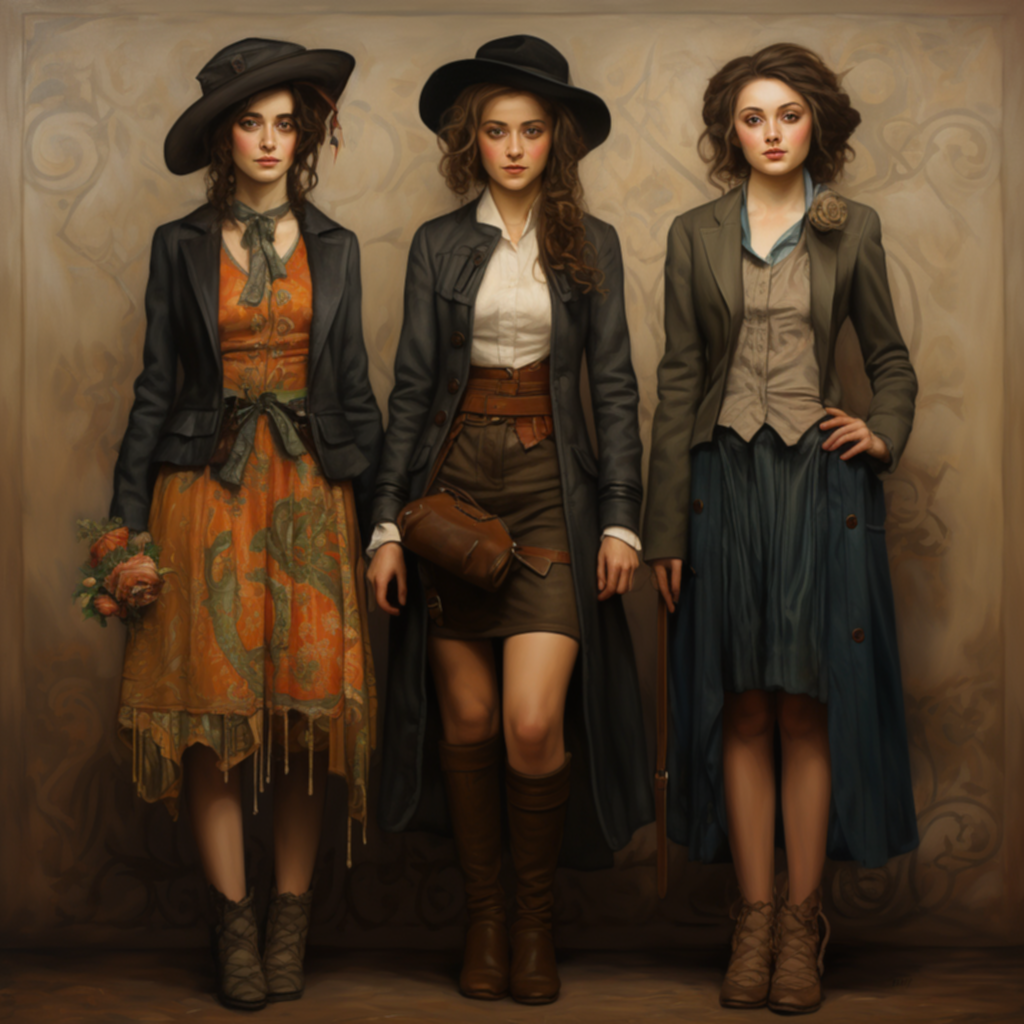
Conclusion: The Vibrant Tapestry of American Women's Clothing Brands
The American fashion industry, with its array of women's clothing brands, is a vibrant tapestry that intertwines style, history, and innovation. From the historical giants that defined American style to the emerging labels pushing the boundaries of design, these brands have made an indelible impact on the global fashion landscape.
The evolution of these brands is a testament to the industry's dynamism and adaptability. They have navigated changing societal norms, embraced technological advancements, and responded to shifting consumer behaviors, all while staying true to their unique style ethos.
Looking forward, it's clear that the American fashion industry will continue to evolve, driven by the ongoing digital revolution, the push for sustainability, the rise of direct-to-consumer models, and the growing demand for inclusivity. As brands adapt to these trends, they will continue to shape the fashion narrative, setting new benchmarks for style, innovation, and responsibility.
FAQs
Q1: What are some of the most well-known American women's clothing brands?
A1: Ralph Lauren, Calvin Klein, Kate Spade, Coach, and Tommy Hilfiger are some of the most well-known American women's clothing brands. They're recognized for their distinctive designs, high-quality materials, and long-standing heritage.
Q2: Who are some emerging American women's clothing brands to watch?
A2: Emerging brands such as Telfar, Brother Vellies, Christopher John Rogers, Pyer Moss, and Eckhaus Latta are making waves in the industry with their innovative designs and unique aesthetics.
Q3: How are American women's clothing brands addressing sustainability?
A3: Many brands are incorporating sustainability into their business models by using eco-friendly materials, employing ethical manufacturing processes, and adopting circular fashion practices. Brands like Eileen Fisher and Patagonia have been pioneers in this regard.
Q4: What future trends can we expect from American women's clothing brands?
A4: Trends such as digital innovation, increased sustainability efforts, greater inclusivity, rise of direct-to-consumer brands, and personalized experiences are expected to shape the future of American women's clothing brands.
Q5: How are American women's clothing brands embracing digitalization?
A5: Brands are leveraging technology to enhance the shopping experience. Innovations such as virtual fittings, augmented reality fashion shows, and digital showrooms are being adopted by several brands to engage with consumers in new ways.
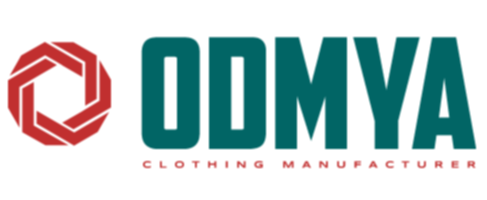




-500x500.jpg)
-500x500.jpg)
-500x500.jpg)
-500x500.jpg)
-500x500.jpg)